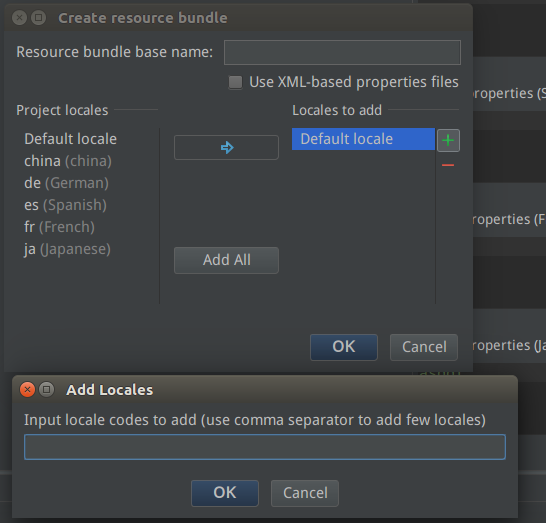这些天在看tomcat,有一个很有趣的类:StringManager,这个类负责将抛出的异常信息包装成指定的语言并输出.
获得StringManager实例
获得实例使用了单例模式和工厂模式,每个类所在的包对应不同StringManager实例
private static final StringManager sm = StringManager.getManager(PasswdUserDatabase.class);
public static final synchronized StringManager getManager(String packageName) {
StringManager mgr = managers.get(packageName);
if (mgr == null) {
mgr = new StringManager(packageName);
managers.put(packageName, mgr);
}
return mgr;
}
最后看下StringManager类的私有构造方法,这里的ResourceBundle和Local早在JDK1.1就已经存在了,以下就是Tomcat源代码中对ResourceBundle的用法
private StringManager(String packageName) {
String bundleName = packageName + ".LocalStrings";
ResourceBundle tempBundle = null;
try {
tempBundle = ResourceBundle.getBundle(bundleName, Locale.getDefault());
} catch( MissingResourceException ex ) {
// Try from the current loader (that's the case for trusted apps)
// Should only be required if using a TC5 style classloader structure
// where common != shared != server
ClassLoader cl = Thread.currentThread().getContextClassLoader();
if( cl != null ) {
try {
tempBundle = ResourceBundle.getBundle(
bundleName, Locale.getDefault(), cl);
} catch(MissingResourceException ex2) {
// Ignore
}
}
}
// Get the actual locale, which may be different from the requested one
if (tempBundle != null) {
locale = tempBundle.getLocale();
} else {
locale = null;
}
bundle = tempBundle;
}
ResourceBundle类中的成员变量包括:
private static final ConcurrentMap<CacheKey, BundleReference> cacheList = new ConcurrentHashMap<>(INITIAL_CACHE_SIZE);
通过key来获取资源的类加载器
private static final ReferenceQueue
ResourceBundle的说明文档中,有一段说明:
You do not have to restrict yourself to using a single family of
`ResourceBundle`s. For example, you could have a set of bundles for
exception messages, `ExceptionResources`
(`ExceptionResources_fr`, `ExceptionResources_de`, ...),
and one for widgets, <code>WidgetResource</code> (`WidgetResources_fr`,
`WidgetResources_de`, ...); breaking up the resources however you like.
而ResourceBundle的子类中,也确实有很多有意思的子类.后边如果需要多语言的功能,可以使用这个类来实现,避免重复造轮子了
创建Resource包
在IDEA中,在要建立Resource包的位置右键:New->Resource Bundle,创建一个Resource包,添加语言包,IDEA中默认有5种,但可以自定义添加所需要的语言.

添加完成后,在IDEA可以方便地添加key-value属性
